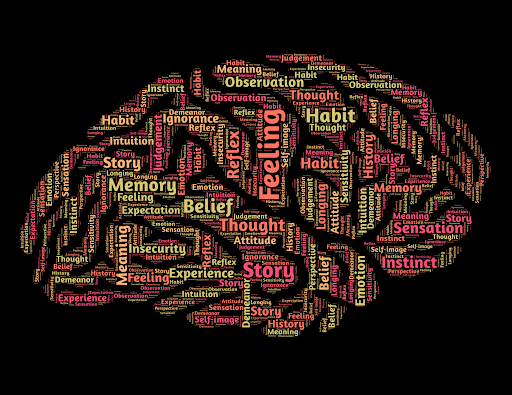Breast cancer is the number one cancer that affects women in the UK. Around 50,000 women and 390 men per year are diagnosed with the disease (Cancer Research UK). A breast cancer diagnosis can be life-changing, and whilst the treatment can have a profound effect on physical health, it can also have an impact on the mental health of the patient.
Thankfully, more people are surviving breast cancer. Yet, we know that around 60% of patients with a breast cancer diagnosis still suffer from symptoms of post-traumatic stress at 1-year post-diagnosis. Feelings of anxiety, depression are not uncommon. People also have many fears including that of recurrence, the impact it has on their personal and professional lives and what the future may hold.
When we are put in challenging and stressful situations, we all cope differently. This is also true when we look at those affected by breast cancer. Some are better able to manage their emotional feelings whilst others find it quite a challenge. Why is that?
How does the brain cope with a breast cancer diagnosis?
This is a question I posed to Nazanin Derakshan, a professor of experimental psychopathology at Birckbeck University of London and the director of the BRiC Centre. Her work looks into neurocognitive mechanisms underlying anxiety and depressive vulnerability, particularly amongst women who have been diagnosed with either primary or secondary breast cancer.
Naz explains that the brain plays a role in how we cope with various emotional and life stresses.

Previous life experiences can have an impact
If a person classes themselves as a worrier or anxious, then their brain will have a greater susceptibility in becoming anxious and stressed when faced with challenging situations, such as having a breast cancer diagnosis. Their brains are hypervigilant and are constantly looking out for threats resulting in more ruminative thoughts and generalised anxiety, which becomes cyclical and can perpetuate.
Previous traumatic of challenging life experiences may also play a part in how the brain attunes to psychological stress. If the individual has had to cope with challenging times in the past such as trauma or life-changing experiences, this can have an effect on how they cope with further stresses.
It appears that this state of hypervigilance is less pronounced in those who cope better with a cancer diagnosis. In these groups of people, the cognitive side of the brain is more in control over the emotional side and thus allows a better sense of control, depressing the emotional vulnerability.
It is very common to hear that people describe their feelings as a roller coaster of emotions, following a breast cancer diagnosis. And in fact, this is the norm and a state that is preferred. “The danger sets in when there is too much emphasis on one state versus the other”, says Naz. “On one hand, you don’t want to be in complete denial about your diagnosis, and on the other hand, you don’t want to be completely paralysed by it either”.
What we want to achieve is a state of harmony between the emotional side of the brain and the cognitive side of the brain. Naz describes this as a see-saw effect. When the emotional side is becoming more dominant, then the cognitive side takes over, and vice versa. This way, a relatively balanced sense of being can be experienced.

What strategies can you use to help cope with feelings of emotional vulnerability?
Mindfulness
This is a practice that focuses ones mind and attention to the present. It is based on Budhist traditions and ancient meditative techniques.
Mindfulness has become popular recently as more people attest to its benefits. Many studies have shown how this practice can reduce anxiety, frequency of ruminative thoughts and worry. There is also evidence to suggest that regular practice may be a preventative strategy to halt the development of mental-health problems.

Breathwork
Breathwork involves breathing exercises where you change your breathing rate and depth, that focuses the mind, bringing awareness to your breath. It has been found that this can calm an agitated mind and relieve symptoms of anxiety and PTSD.
There are many types of breathwork practices, some you can do by yourself, others require practitioners to guide you.

Engaging the brain and challenge yourself
You can do this by performing simple tasks. The important thing is to make sure it involves a degree of thinking and that it challenges your brain. Reading, playing an instrument, gardening, doing puzzles, playing games or even just tidying up. These simple tasks focus the mind and engage the brain. The more engaging a lifestyle you lead, the more you can improve your brain health.

Self care
Finally, it is always so important to give yourself self-care. We all live in a world that is full of distractions and obligations. The need to always be productive and having to contend with the demands of your time and energy is forever present. The constant state of busyness is now becoming the norm. We need to stop and check-in. Give yourself permission to do something just for you. Something that brings you joy and excitement.

These could be simple things like phoning a friend, reading a book, watching your favourite program, taking a long bath or even having your favourite glass of wine. Whatever it is, remember that you should give yourself the time it needs. Self-care is important, you deserve it!
Navigating a breast cancer diagnosis can be challenging and at times really hard. I hope some of these strategies can help in some small way.
If you want to listen to the podcast episode where I interview Professor Naz Derakhshan, click here.


